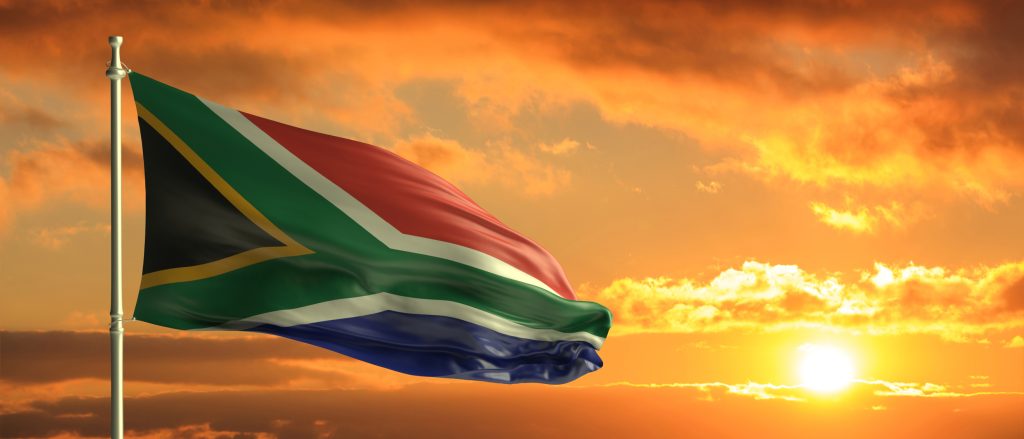South Africa Classifies Afrikaansas ‘Foreign’
[ad_1]

South Africa’s governing administration has touched off a storm right after it moved to classify native Afrikaans as a “foreign language.” For clarity’s sake, listed here is a hypothesis: this move would be identical to the US secretary of schooling abruptly waking up and classifying English as a overseas language in America’s college curriculum.
Afrikaans is a domestically made dialect of the initial European Dutch language. White colonial settlers of Dutch, Germanic, and French origins created Afrikaans on landing in South Africa in the 1600s. Their descendants amount 4 million currently in South Africa. Black South Africans make up roughly 47 million out of the nation’s 60-million-strong inhabitants.
“Afrikaans has a sensitively contested heritage as the language of Black enslavement and racist apartheid law enforcement in South Africa. For Black South Africans, Afrikaans is a scene of a colonial crime,” says Kudakwashe Magezi, a sociologist and immigration legal rights activist in South Africa.
“For example, on 16 June 1976, countless numbers of Black South African kids in Soweto township, South Africa, marched versus the colonial government’s initiative to impose Afrikaans as the special classroom language of instruction and pressure Black pupils to recite the Lord’s Prayer. Concerning 400 to 700 ‘rebellious’ Black college students have been murdered by White Afrikaans policemen in a working day.”
Language of Instruction
Given that the stop of racist apartheid rule in South Africa, Afrikaans has been one of the country’s eight formal languages and is the 3rd most spoken language in the place. But as Black South African postcolonial nationalism can take root, there have been gradual attempts to dismantle the use of Afrikaans as element of a mission to revive marginalized Black South African languages.
So, in Oct 2020, Mr. Blade Nzimande, the South African minister of instruction, proposed an schooling invoice that seeks to pressure South Africa’s universities to designate additional scientific studies in previously marginalized Black South African languages and deal with the linguistic injustices of European colonialism in the region. Afrikaans was swiftly designated a ‘foreign’ European language whose use in South Africa’s universities’ faculties will have to be discouraged.
Outcry
Leaders of the White Afrikaans-speaking minority local community in South Africa, who are effectively descendants of Dutch colonists, have hauled South Africa’s authorities just before courts and the UN Instructional, Scientific, and Cultural Business above the try to reclassify Afrikaans as a international language.
“This is disgusting reverse racism,” states Leon Schreiber, a White Afrikaans-talking lawmaker of Dutch ethnicity. Mr. Schreiber accuses the Black postcolonial South African governing administration of bigotry and hatred of Afrikaans society and language.
“White Afrikaans-speaking learners are restricted to only 5% of destinations in healthcare colleges, they are successfully stood down in military, write-up business, law enforcement, banking careers in favor of Black interns. The South Africa education and learning minister openly hates the Afrikaans language,” claims Mr. Schreiber.
The Afrikaans-talking neighborhood in South Africa is asking why the language is instantly staying classified as overseas in the place even though English, a different colonial European language, stays untouched.
“This is the height of myopic discrimination. Afrikaans is invented in South Africa, not in Europe in Holland,” fumes Alana Bailey of Afriforum, a White basis that performs to progress Afrikaans speakers’ language, training, and group legal rights in South Africa. In May possibly 2021, Afriforum sued the College of South Africa for discrimination mainly because it experienced taken off Afrikaans as the language of instruction at the college. Afriforum gained the scenario in September, when the South Africa Supreme Courtroom declared that the designation of English as the only formal language of instruction at the University of South Africa was unconstitutional. The court docket more affirmed that learners of all ethnicities in South Africa have a ideal to be instructed in their mother languages instead than getting subjected to English.
“It was a wonderful judgment,” states Bailey. “The racist try to marginalize Afrikaans language in postcolonial South Africa is just that—racist and shameful.”
Reverse Racism
Supporters insist that Afrikaans, an off-shoot of the European Dutch language, has roots (similes, verbs, accents, cues) created in South Africa about 400 many years.
“This reclassification of the Afrikaans language as overseas is a sample of the reverse racism presently endured by White Afrikaans South Africa citizens,” provides Bailey.
Nonetheless, Mr. Nzimande insists that he harbors no prejudice versus the Afrikaans language: “The White suitable wing is over-occupied with the supremacy of Afrikaans language only and thus ignoring the nine other languages in postcolonial South Africa. We are now a varied, democratic South Africa, and Afrikaans has no unique lead more than other languages.”
[ad_2]
Supply hyperlink
